Small businesses receive additional tax relief in recovering research costs

Executive summary: IRS guidance provides tax relief and flexibility to small businesses recovering domestic research costs
Small businesses have access to additional tax relief and flexibility in recovering domestic research costs, according to IRS guidance released on Aug. 28, 2025. The guidance allows small businesses to retroactively expense these costs, adjust research credit elections or change accounting methods for 2024 or 2025. Relief is available for those that already filed 2024 returns. Alternatively, taxpayers may opt for general procedures instead of ones specific to small businesses.
Small businesses may be able to apply new, favorable research and development expensing provisions retroactively with some caveats, according to recent IRS guidance. The provisions, a major part of business tax relief in the One Big Beautiful Bill Act (OBBBA), include a return to immediate expensing for domestic research or experimental expenditures (research costs), starting in a taxpayer’s first taxable year beginning after Dec. 31, 2024.
The OBBBA specifies additional relief and flexibility for small businesses, which are defined generally as having average annual gross receipts for the 2022, 2023 and 2024 taxable years at or below $31,000,000. Most notably, small business taxpayers may elect to have the domestic research cost expensing provisions apply retroactively to taxable years beginning after Dec. 31, 2021, instead of Dec. 31, 2024. This election is generally achieved through amended returns, but a small business taxpayer may have some limited time to immediately deduct domestic research costs in 2024 and then file only 2022 and 2023 amended returns.
The election for retroactivity of domestic research costs also requires an analysis of another provision that must be taken into account retroactively—amendments to section 280C(c), which affect the research credit cost disallowance in the amount of the research credit or a reduced research credit election.
Under the Tax Cuts and Jobs Act of 2017 (TCJA), how these provisions interacted with the required capitalization of research costs was not clear, which led many taxpayers to elect a more favorable option to them. Here, Congress clarifies the intent of these provisions and cleans up the language but requires an amending small business taxpayer to also apply the clarification retroactively.
A taxpayer makes the amending election by effectively doing so. That is, the guidance released on Aug. 28, 2025, tells us what procedures a small business taxpayer must undertake to make what it calls the ‘small business OBBBA election.’
Under these procedures, a small business taxpayer makes the election by attaching a statement containing specific language (provided in the revenue procedure) to its administrative adjustment request (AAR) or original or amended federal income tax return year, as applicable, for an applicable taxable year. Importantly, once this election is made, it must be carried out fully as required by these procedures (i.e., if one return is amended, all impacted years must be amended as well).
Alternative method change procedures
Instead of amending returns, a small business taxpayer may instead elect to request consent to change its method of accounting for domestic research costs in its 2024 or 2025 federal income tax return. The guidance provides specific procedures and method change relief for a small business taxpayer that may have already filed its 2024 federal income tax return without an extension and wishes to take advantage of these method change procedures.
Under this accounting method change, a small business taxpayer is afforded a section 481(a) adjustment allowing it to immediately deduct any remaining TCJA domestic capitalized research costs in the year of change. While this guidance was released close to the extended due date for calendar year taxpayers, some may find it worthwhile to complete this method change for the 2024 federal income tax year versus the additional time provided if the change is filed with the 2025 federal income tax return. In addition, should a small business taxpayer wish to make or revoke a reduced research credit election under section 280C(c)(2) it must do so on each income tax return. That is to say, a small business taxpayer cannot change its election using the method change procedures available to it in 2024.
Other options for recovering research costs
In lieu of the immediate expensing option for domestic research costs, any taxpayer may elect to capitalize such costs and amortize them over a period of not less than 60 months, beginning when the taxpayer first recognizes benefits from the expenditures.
With the retroactivity election, a small business taxpayer may move its 2022-2024 tax year domestic research costs from the TCJA capitalization method to the OBBBA capitalization method. Why a taxpayer would elect one methodology over another requires a factual determination that you should discuss with your tax advisor.
Alternatively, a small business taxpayer may choose to do none of these options and utilize the procedures provided for filing an accounting method change in its first taxable year beginning after Dec. 31, 2024, and to make an election to accelerate the amortization deduction of previously capitalized TCJA domestic research costs.
If you believe you are a small business taxpayer, contact your tax advisor to discuss the options available to you and specific eligibility criteria to make these elections.
Please connect with your advisor if you have any questions about this article.
This article was written by Ryan Corcoran, Christian Wood and originally appeared on 2025-09-03. Reprinted with permission from RSM US LLP.
© 2024 RSM US LLP. All rights reserved. https://rsmus.com/insights/tax-alerts/2025/small-businesses-tax-relief-research-costs.html
RSM US LLP is a limited liability partnership and the U.S. member firm of RSM International, a global network of independent assurance, tax and consulting firms. The member firms of RSM International collaborate to provide services to global clients, but are separate and distinct legal entities that cannot obligate each other. Each member firm is responsible only for its own acts and omissions, and not those of any other party. Visit rsmus.com/about for more information regarding RSM US LLP and RSM International.
The information contained herein is general in nature and based on authorities that are subject to change. RSM US LLP guarantees neither the accuracy nor completeness of any information and is not responsible for any errors or omissions, or for results obtained by others as a result of reliance upon such information. RSM US LLP assumes no obligation to inform the reader of any changes in tax laws or other factors that could affect information contained herein. This publication does not, and is not intended to, provide legal, tax or accounting advice, and readers should consult their tax advisors concerning the application of tax laws to their particular situations. This analysis is not tax advice and is not intended or written to be used, and cannot be used, for purposes of avoiding tax penalties that may be imposed on any taxpayer.



